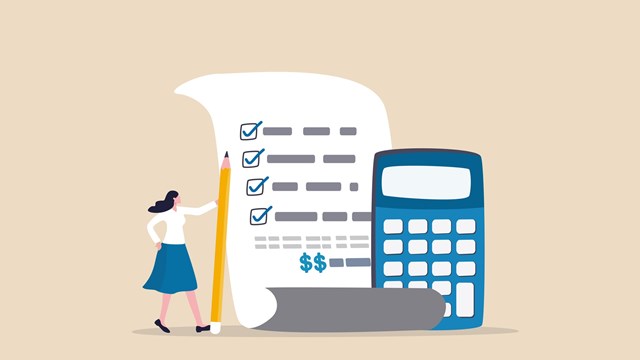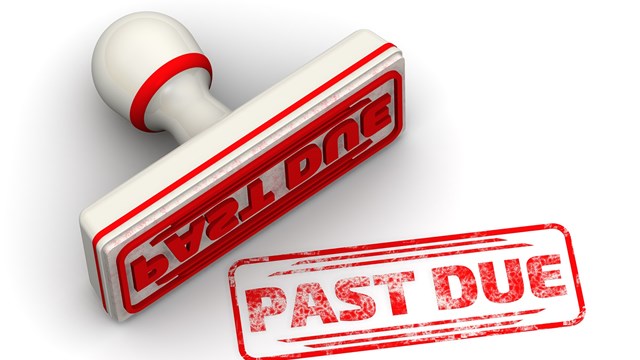For most people, buying a home is the biggest investment they will ever make. But in order to make sure it
doesn't become the biggest mistake they ever make, home buyers should do their homework before making a purchase. Following is an exclusive list prepared by The Cooperator that outlines 12 key items to examine before signing on the dotted line.
1. Know the Difference Between a Co-op and a Condo
A Co-op: Buying into a cooperative corporation, or co-op, is a securities exchange, not a real estate transaction. The buyer purchases shares in the corporation that owns the building. As a shareholder, he or she has the right to lease a designated apartment from the corporation. Each shareholder also has the right to vote for the board of directors, who in turn runs the building.
A Condo: Buying a condominium, or condo, is a real estate transaction. The buyer purchases real property, which comes with a deed, much like purchasing a house. Condo owners also vote for the board of directors, which runs the building in basically the same way as a co-op board, but with less sweeping authority.
2. Know Whether You Want a Co-op or a Condo
Narrow down your search by deciding in advance which form of apartment ownership you prefer.
A Co-op: Some people prefer co-ops because they tend to be more restrictive about who can buy or sublease a unit in the building. As a result, co-ops tend to have more owner-occupied units than condos (as opposed to invester-owned units which are sublet) and can impose stricter guidelines for new buyers, such as all cash purchases, high levels of savings, and so on. Many people feel that this increases both the security and the financial viability of the building.
A Condo: Some buyers prefer a condo because there is more flexibility in terms of subletting and apartment usage. Sublets are rarely turned down and it is usually permissible to operate a business out of your unit. There is usually no board review of new buyers so purchasers do not have to reveal all their finances to the board, be interviewed or pass board approval in order to buy a unit.
3. Know the Financial Differences Between a Co-op and a Condo
A Co-op: Most co-op buildings have an underlying mortgage on the building and mortgage payments are included as part of the monthly maintenance fee paid by each shareholder. The mortgage interest and the real estate tax portion of your maintenance are tax deductible, as is the interest portion of your personal mortgage on the unit. Because mortgage payments and real estate taxes are included, maintenance fees tend to be higher in co-ops than in condos, but this is usually offset by a lower purchase price.
A Condo: Condominiums do not carry underlying mortgages on the building and individual owners pay their own real estate taxes. Therefore, maintenance fees tend to be lower in condos than in co-ops, while purchase prices tend to be higher. When comparing maintenance fees in a co-op versus a condo, you must add the monthly real estate taxes to the condo's maintenance fee in order to be comparing apples to apples, since a co-op's maintenance fee includes real estate taxes but a condo's doesn't.
4. Know How to Compare Monthly Carrying Costs Between Owning and Renting
When considering how much your monthly housing costs will be, be sure to take into account the tax savings you'll receive as a co-op or condo owner. Ask each co-op you look at what percentage of the maintenance fee is tax deductible (this will be the interest portion of the underlying mortgage and the real estate taxes). In a condo, your real estate taxes are deductible. In both types of apartment, as in any primary or secondary home, the interest portion of your personal mortgage is also tax deductible. Add up all these tax deductions, multiply by your tax bracket percentage rate, and you will see how much of your housing costs you will get back from the government in the form of homeowners tax savings.
For example, if your interest and real estate tax payments will be $18,000 a year and you are in the 30 percent tax bracket (take into account city, state and federal taxes), then you may write off the complete $18,000, giving you a tax savings of approximately $6,000. It pays to figure this out ahead of time to see how owning will compare with renting in terms of annual cost. If the carrying costs on your rental are $1,500 per month and the carrying costs on the co-op you are considering are $2,000 per month ($1,200 in mortgage payments and $800 in maintenance fees), you must consider that as much as $16,000 of the co-op costs could be tax deductible, resulting in a tax savings of nearly $5,000. So $18,000 in rent versus $24,000 in mortgage and maintenance are about equal, once the $5,000 in tax savings has been figured in.
5. Know What's On the Market
Once you've narrowed down whether you want a co-op or a condo and what neighborhood you like, be sure to look at a lot of apartments to become familiar with what's available at what price. The better you know the market, the better you'll know whether an apartment is priced right and how much to bid as your first offer.
6. Know the Finances of the Building You're Considering
Ask to see the most recent set of financial statements and the most recent annual statement of any building you are considering. Find out how many owners are in arrears on their maintenance payments and by how much. Ask how many units are owner-occupied and how many are sublet. Find out how much money is in the reserve fund. In a co-op, ask how many units are still sponsor-owned. If over half the units are sponsor owned, you may have difficulty obtaining financing to buy into that building.
7. Know What Amenities Come With the Apartment
Amenities add value. Be sure you know exactly what services you will be getting, such as doorman (part time or 24-hour), security, concierge, elevator attendant. If there is a health club, visit it at the hours you might use it. If there is a rooftop deck, take a look at it. Within the apartment itself, are there terraces, views, new kitchen and/or bathrooms, how much closet space? All of these amenities add value to the apartment.
8. Know Who Lives There
Spend some time in the lobby watching who goes in and out. Stop to chat with building residents and ask what they like about the building and what they don't like. Try to meet or speak to the board president or other board members. Get a feel for the type of people who live in the building.
9. Know If It Is Noisy
Ask to spend an hour or two in the apartment at the times you are most concerned about noise. Listen to the sounds you hear from neighboring apartments. Are the walls too thin or do they muffle the sounds?
10. Know Who the Management Company Is
Most co-op and condo buildings hire professional management firms to do the day-to-day management. Find out the name of the management company and meet the managing agent who handles the building. Speak to a principal at the management firm. He or she should be able to answer your questions about the financial and physical condition of the building.
11. Know the Physical Condition of the Building
Ask to see an engineer or architects report. If you are serious about an apartment, consider hiring your own architect or engineer to evaluate the building and the unit. Find out what major capital improvements have been completed on the building in the last five years (roof, elevators, boilers, etc.) and what is planned for the near future. Any new work will be paid for out of the reserve fund or by special assessment to each owner.
12. Know the Neighborhood
Spend some time in the neighborhood to be sure you like it. Check out the nearby food stores, pharmacies, health clubs and other merchants you might need. Check out nearby transportation as well as school bus routes. Ask your broker if the price and maintenance on the unit you are considering are in line with comparable units in the neighborhood.
Ms. Chesler is former executive editor of The Cooperator.







6 Comments
Leave a Comment